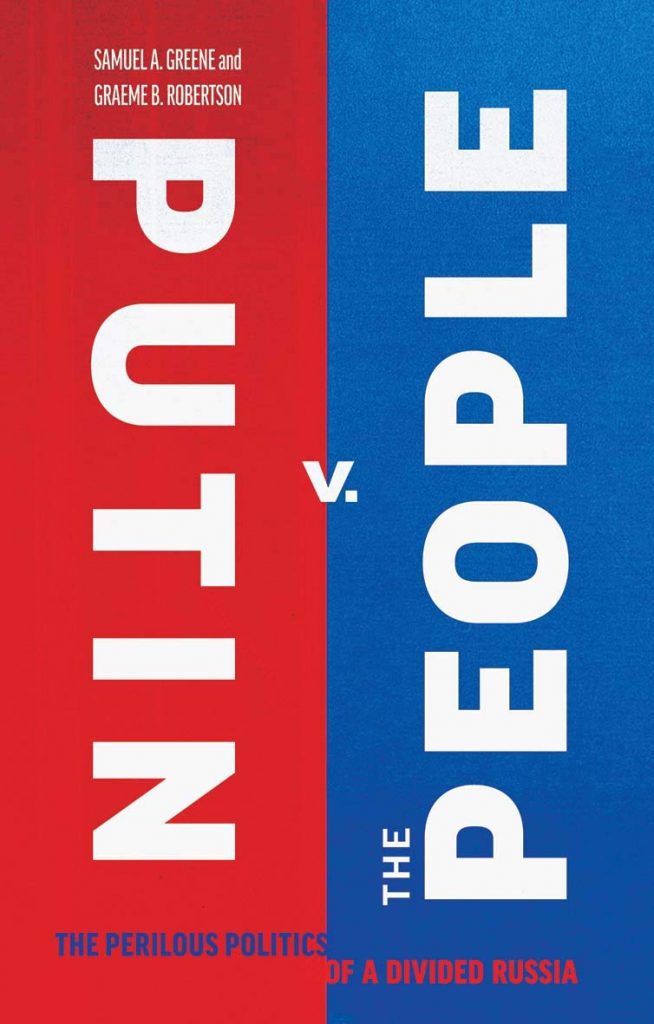By Spencer Silbey

Samuel A Greene and Graeme B. Robertson’s Putin v. the People examines the manner in
which the Putin regime has influenced Russia’s culture and political landscape. Delving into the influences and turning points of Russian society, Putin v. the People takes a unique perspective on authoritarian power relations and the not-so-subtle power of the masses in influencing regime strategy and decisions.
Greene and Robertson focus their research not only on Putin as an individual, but also as a rallying point in Russian culture. They observe him through the lens of co-creation: he leads Russia, but Russia, and its people for that matter, also influence him. Appreciating this relationship provides the authors with a unique perspective. According to
Greene and Robertson, Putin maintains his power to intimidate and silence opposition while also shaping the will of the people. Putin takes the opinion of the public seriously because coercion is more costly and requires a tighter clamp on the people, and also because the maintenance of such popularity enables him to better ward off political rivals and keep his ruling class obedient.
As the authors explain, Russians feel pride and hope when thinking about Putin and his regime, and the regime provides a source of comfort and obfuscation from responsibility, greatly softening the opposition to the regime and its goals. By convincing the masses of a fictionalized state of affairs, the Putin regime expends less energy in manufacturing beliefs and reigning in dissidents.
Putin v. the People analyzes key events in recent Russian history, including: the protests following the fraudulent 2011 elections and the manner in which media characterized
Putin’s opposition; the annexation of Crimea and how television and internet nationalist groups influenced public opinion; and the psychological analysis of everyday Russians and how public sentiment provides a pivot point upon which Putin’s control precariously balances.
While Putin v. the People lays a framework for substantive discussion of modern Russian
politics, some of its methods, particularly the extrapolation of survey data to the country at large and applying personality tests at scale, hinder its ability to construct incontestable conclusions.
In summary, Putin v. the People provides a revealing window into the modern Russian
political system. Greene and Robertson artfully assess the intricacies of propaganda and
manipulation amid transformational technology and geopolitical strife. The reader is left pondering the question: “when will Putin’s power crumble, and, looking back, will we all have seen it coming?”
Spencer Silbey is a junior majoring in Marketing and Diplomacy & Global Politics.
